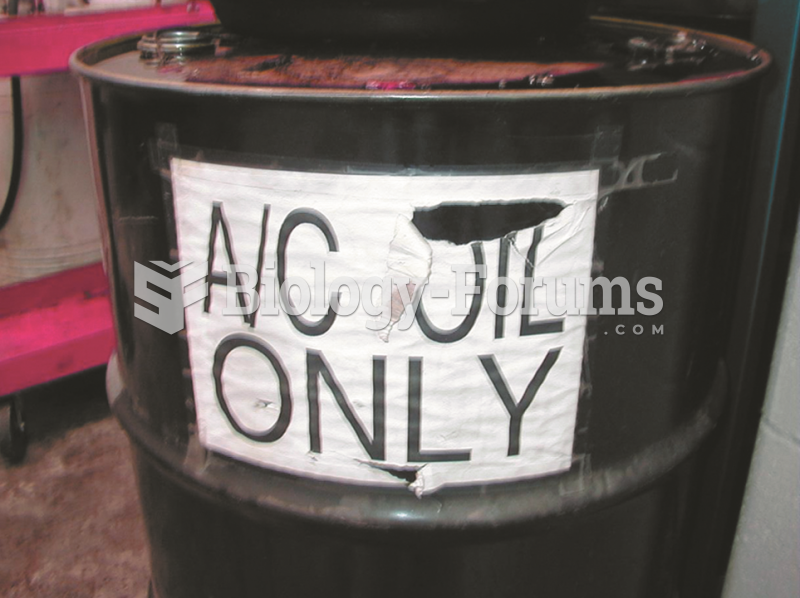|
|
|
The Romans did not use numerals to indicate fractions but instead used words to indicate parts of a whole.
During the twentieth century, a variant of the metric system was used in Russia and France in which the base unit of mass was the tonne. Instead of kilograms, this system used millitonnes (mt).
As many as 28% of hospitalized patients requiring mechanical ventilators to help them breathe (for more than 48 hours) will develop ventilator-associated pneumonia. Current therapy involves intravenous antibiotics, but new antibiotics that can be inhaled (and more directly treat the infection) are being developed.
The training of an anesthesiologist typically requires four years of college, 4 years of medical school, 1 year of internship, and 3 years of residency.
Human stomach acid is strong enough to dissolve small pieces of metal such as razor blades or staples.
 An emergency medical technician positions defibrillator paddles on the chest of a supine male patien
An emergency medical technician positions defibrillator paddles on the chest of a supine male patien
 Air-conditioning refrigerant oil must be kept separated from other oils because it contains traces ...
Air-conditioning refrigerant oil must be kept separated from other oils because it contains traces ...
 To help locate how far the engine is being rotated, the technician is removing the distributor cap ...
To help locate how far the engine is being rotated, the technician is removing the distributor cap ...




